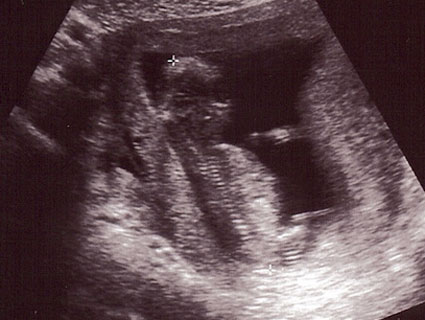On Thursday, a federal judge blocked a South Dakota measure that would have forced women to visit a counseling center and wait 72 hours before obtaining an abortion.
The law, set to take effect on Friday, required women to visit a so-called “crisis pregnancy center”—which are often run by religious and anti-abortion groups—before having an abortion. It also imposed the longest mandatory waiting period in the country. Judge Karen Schreier of the US District Court in South Dakota granted a preliminary injunction sought by Planned Parenthood and the American Civil Liberties Union, ruling that the law is likely be found unconstitutional.
The law inspired outrage from abortion rights advocates, who note that crisis pregnancy centers are unregulated, frequently staffed by unqualified volunteers, have been found to provide false information, and often exist for the sole purpose of discouraging women from going forward with an abortion. The text of the law passed in South Dakota didn’t really hide that goal, stating that the aim of the measure was to help women “maintain and keep their relationship with their unborn children.”
Schreier wrote in the decision:
Forcing a woman to divulge to a stranger at a pregnancy help center the fact that she has chosen to undergo an abortion humiliates and degrades her as a human being. The woman will feel degraded by the compulsive nature of the Pregnancy Help Center requirements, which suggest that she has made the ‘wrong’ decision, has not really ‘thought’ about her decision to undergo an abortion, or is ‘not intelligent enough’ to make the decision with the advice of a physician. Furthermore, these women are forced into a hostile environment.
In a state like South Dakota, the 72-hour waiting period would have presented an even bigger logistical barrier. There’s only one abortion provider in the state, and a woman could have to drive up to six hours to reach the clinic.
Mimi Liu, a Planned Parenthood attorney who argued the case in court, said in a statement Thursday evening: “We are happy and relieved for our patients that the court’s decision today means they will not have to suffer through these outrageous and demeaning requirements.”














